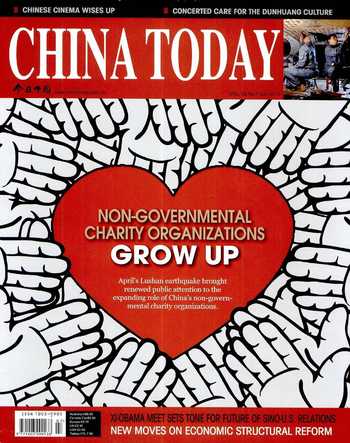letters
I have been a regular reader of China Today since January 2013. It helps me a lot to know about the various issues and cultural affairs of China and fulfills my curiosity about this great country. I have been able to learn much more from the varied and valuable articles. I offer my best wishes for China Todays greater success. Thanks...
Rinkumani Kakati
Gauhati University
Assam, India
When I started school 33 years ago, English was not on the curriculum until the seventh grade. Now it is taught in every Chinese kindergarten in the city. Kids today are much better educated than we were: it is not rare for an eight-year-old to be enrolled in three or four after-school classes ranging from piano to mathematics. The British National Trust once released a list of the 50 things to do before one is 12, among which are rolling down a really big hill, camping out in the wild and catching fish with a net. But most urban kids in China can barely find any time for these activities, as they have classes in the evening and on weekends. We, policy makers, educators and parents, must all take a good look at the countrys education system and allow our children time to look up from their textbooks and experience fun and wonder in a bigger world.
Zhao Xia
Beijing, China
There is plenty of talk about urbanization these days, which is hailed as a sign of economic and social progress. We however cannot overlook the fact that the nation, and the whole of humanity, depends on agriculture for its subsistence. There has been an exodus of laborers from the countryside to the cities in recent decades. Urban development, pollution and natural disasters have all made forays into Chinas already scarce arable lands, whose acreage per capita is only 40 percent of the world average. It is good to see entrepreneurs like Chen Guanghui confident about management, marketing and new technologies enter the farming sector and develop more efficient and environmentally sustainable agricultural models. Such efforts have enormous environmental, economic and social benefits.
Zhu Minhang
Nanyang, Henan Province, China
Government support is critical for the survival of some timehonored arts and crafts in the modern era. To take inkstones as an example, I think 95 percent or more Chinese in their 30s and younger have never used one in their lives. What was formerly one of the four necessities or “treasures” of any educated mans study is now no more than a decoration for most of us, as we dont write with brushes any more. But it is not right to let these beautifully carved objects and the traditional skills used to make them end up in the dustbin of history.
Li Bin
Tongcheng, Anhui Province, China

